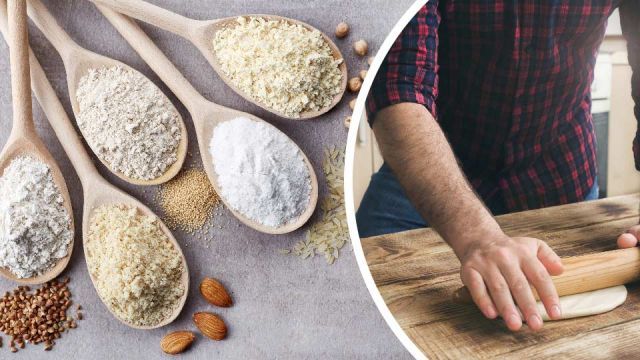
White flour is a staple of the American diet, but there is an overwhelming amount of evidence that consuming it in the quantities that most people do is extremely unhealthy.
The health risks of white flour
Understanding how white flour is made (and what’s actually in it) should encourage you to seek out healthier options. To start with, most white flour products are processed at every stage. This leads to accumulations of toxins including pesticides, preservatives and bleaching agents that fundamentally adulterate this ingredient.
Here are several other reasons you should avoid foods and products containing white flour:
1. It increases your risk of deadly disease
Studies show that eating ultra-processed foods, like white flour, can significantly increase your risk for developing many cancers (as well as numerous immune disorders and chronic diseases).
2. It’s nutritionally deficient
“Enriched flour” is flour that contains vitamins and minerals that have been added artificially, but these synthetic “nutrients” are not really bioavailable.
3. It does not provide heart-healthy fiber
Methods used to process white flour strip it of natural nutrients and beneficial fiber, which you need to full fuller, aid digestion, lower cholesterol and more.
4. It is is loaded with refined carbohydrates
Refined carbohydrates are really nothing more than simple sugars, which cause blood glucose levels to spike dramatically. Consuming excess simple carbs is strongly correlated with weight gain, metabolic disorders, diabetes and numerous other health maladies.
5. It promotes inflammation
White flour is deficient in nutrients that support a robust immune system. To compound matters, processed flours promote inflammation that can precipitate conditions (like leaky gut syndrome) that undermine nutrient absorption. This vicious cycle can trigger a cascade of inflammation that causes your immune system to misfire.
6. It causes gastric distress
For reasons unknown, Celiac disease, which involves a sensitivity to the gluten in wheat flour, has skyrocketed in the last 70 years. Although gluten is a prime culprit because it is believed to irritate the digestive tract, many researchers now believe that refined carbs are a huge part of the problem, too, since they ferment when digested (which causes abdominal cramps and gastric distress). These simple carbs also elevate blood glucose and bad cholesterol levels, which in turn feeds the inflammation that undermines the integrity of your digestive system.
The explosion of gluten-sensitivity and wheat allergies has prompted many nutritionists to question the modern American diet. They point to the fact that the rate of many chronic diseases rose dramatically as Americans began consuming ever-increasing quantities of heavily processed foods.
Try these healthy paleo flour substitutes
The gap between what our bodies have been optimized to eat (due to millions of years of evolution) and what most people consume today is very wide.
Advocates of the paleolithic diet contend that eating more of the food types that our ancient (hunter-gatherer) ancestors ate can help you avoid many of the so-called “diseases of civilization” (especially heart disease, diabetes and cancer). That kind of thinking has led proponents of paleolithic nutrition to recommend a number of healthy alternatives to white flour. Popular paleo flours include:
- Almond flour. As the name implies, this flour is made from finely ground almonds. And as you might expect, this nutty grain is rich in fiber, protein and immune-boosting B vitamins. It’s also gluten-free. On the downside, it doesn’t have the same binding quality as wheat, which means baked goods will tend to be crumbly.
- Arrowroot flour. The name is derived from the fact that Central American Indians used this plant-based starch to heal poison arrow wounds. They also used it to aid digestion and boost vitality. Today, there’s evidence that arrowroot flour can boost immunity and improve digestion. You can use this flour as a thickener and as an alternative to cornstarch.
- Coconut flour is fiber-rich and nutritious, but it can be hard to work with in recipes because it is both moisture absorbent and doesn’t hold together well.
- Cassava flour. Many gourmet chefs consider this their top paleo choice to replace white flour. It is easy to work with and ideal for people with a nut allergy. It is also recommended for individuals following the AIP autoimmune protocol.
- Tapioca starch. This is an inexpensive flour that can be used to make gravy, cupcakes, muffins and pancakes.
- Tigernut flour. The name is something of a misnomer because this flour is derived from a plant root (not a nut) found in North Africa and the Mediterranean. It reportedly helps nurture your good bacteria.
- Sweet potato flour is loaded with nutrients like vitamins A and K. It holds moisture well and is ideal if you’d like sweet-tasting waffles or cupcakes.
In general, each of the paleo flours tends to have their strengths and weaknesses. In most instances, you won’t be able to substitute them at a 1:1 ratio for white flour. However, combining paleo flours (which entails some trial and error) can help you achieve your desired culinary and wellness goals.
— Scott O’Reilly

